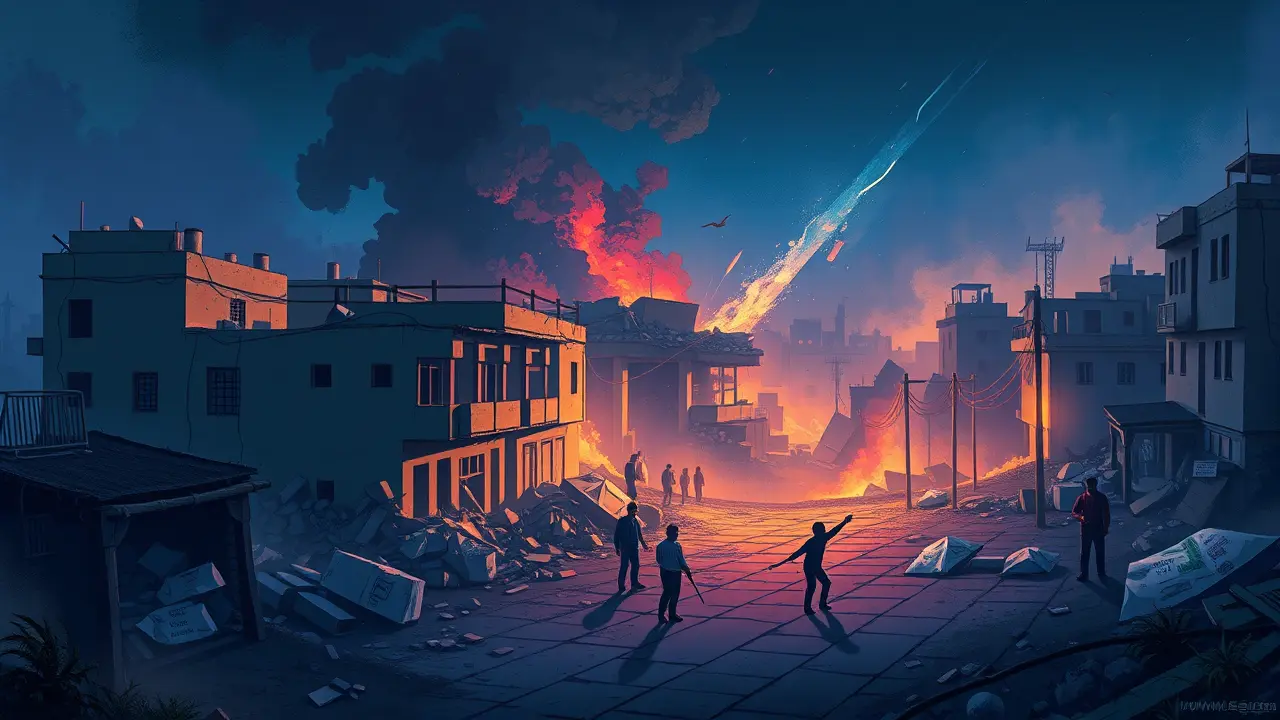Palestinians anticipate ceasefire with mixed joy and grief.
The air in Gaza, thick with the acrid scent of dust and decay, is suddenly charged with a different, more complex energy—a fragile, tentative hope that feels as dangerous as it is necessary. News of a potential ceasefire, whispered through shattered streets and crowded shelters, does not arrive as a pure, unadulterated victory; it lands with the heavy thud of an impending reckoning, forcing a population that has mastered the art of survival to finally, and terrifyingly, begin the process of feeling.For months, the relentless calculus of war has demanded a singular focus: find bread, find water, find a moment of safety from the sky. Grief was a luxury, a bill that could not be paid when the primary currency was mere existence.It was deferred, compartmentalized, buried under the immediate, physical need to endure one more hour, one more night. Now, as the thunder of bombardment threatens to recede into an unnerving silence, that deferred emotional debt is coming due all at once.You see it in the faces of fathers who, upon hearing the news, do not cheer but simply sink to the ground, their shoulders finally shaking with sobs they had no time for when their children needed them to be pillars of stone. You see it in the hollow eyes of mothers who, for the first time, allow themselves to remember the exact shade of their son’s smile or the sound of their daughter’s laughter, memories that were too painful to access when the alternative was paralyzing despair.This is the cruel paradox of the ceasefire: it offers the promise of an end to the dying, but it simultaneously unlocks the floodgates for a tsunami of mourning for those already lost. The celebrations that do erupt are raw and desperate, less about joy and more about the sheer, explosive release of pent-up tension, a collective scream into a suddenly quieter world.It is the sound of people allowing themselves, for a single, fleeting moment, to believe that the nightmare might be over, even as they stand ankle-deep in its physical wreckage. But what comes after the cheering stops? The ceasefire is not a magic wand that will rebuild collapsed homes or restore vanished livelihoods.It is merely a pause, a fragile window in which the monumental task of counting the cost begins. The grief that was set aside will now demand its space, manifesting not just as tears, but as a profound, generation-defining trauma.The mental health crisis looming over Gaza is a specter as real as any bomb, a silent emergency that will unfold in the weeks and months to come, in the form of PTSD, anxiety, and a deep, abiding sorrow that will shape the psyche of every survivor. International aid groups, already stretched beyond capacity, now face the dual challenge of delivering physical aid while scrambling to provide psychological first aid to a populace that has witnessed the unimaginable.The geopolitical chess game that led to this pause will continue in distant capitals, with diplomats and politicians debating terms and timelines, but here, on the ground, the reality is intensely human and agonizingly personal. This moment of mixed joy and grief is not an endpoint; it is the first, tremulous step on a path toward an uncertain future, a path that will be walked with heavy hearts and the haunting knowledge that while the war may stop, the suffering has simply entered a new, more introspective phase.
It’s quiet here...Start the conversation by leaving the first comment.
© 2025 Outpoll Service LTD. All rights reserved.
